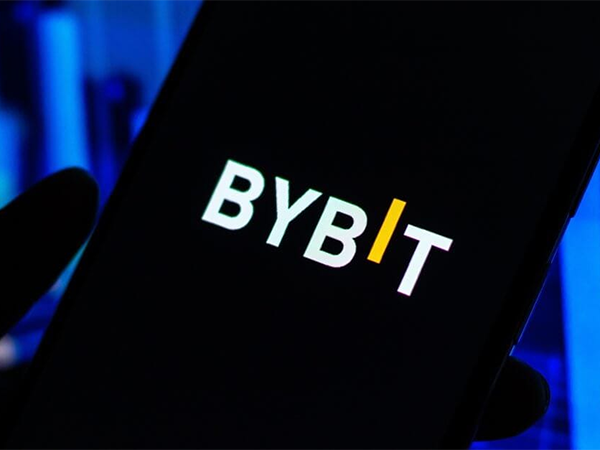Bybit USA Access Guide: Is Bybit Available or Legal in the United States?

Cryptocurrency traders in the United States often face regulatory hurdles when trying to access global exchanges. Bybit, one of the world’s leading crypto derivatives platforms, has a complex and often misunderstood relationship with U.S. regulations.
This comprehensive guide answers key questions:
-
Is Bybit legal in the USA?
-
Can U.S. users access Bybit?
-
What are the alternatives if Bybit is restricted?
-
How does Bybit compare to U.S.-licensed exchanges?
We’ll also cover the risks of VPN use, KYC rules, withdrawal restrictions, and legal trading options—ensuring you stay informed and compliant while trading crypto derivatives.
1. Is Bybit Legal in the United States? (2024 Update)
Bybit’s Official Stance on U.S. Users
Bybit does not have a U.S. license and explicitly restricts access to users from the United States. In 2019, it began blocking U.S. IP addresses to comply with U.S. regulatory bodies.
Despite this, some American traders attempt to access Bybit using VPNs, though this poses legal and security risks.
Why Is Bybit Restricted in the U.S.?
U.S. regulatory agencies such as the CFTC (Commodity Futures Trading Commission) and SEC (Securities and Exchange Commission) enforce strict rules regarding crypto derivatives. Bybit’s restrictions stem from:
-
Potential unregistered securities trading (SEC concern)
-
Offering leveraged futures without proper licenses (CFTC concern)
-
Historically lax KYC/AML protocols (which allowed anonymous trading)
Unlike regulated competitors such as Kraken Futures, Bybit has not yet applied for U.S. licensing.
2. Can U.S. Users Still Access Bybit?
Option 1: Using a VPN (Not Recommended)
Some users bypass geoblocks using VPNs (e.g., NordVPN or ExpressVPN). However, this violates Bybit’s Terms of Service and can lead to:
-
Account suspension if detected
-
Withdrawal freezes pending identity verification
-
Legal liability if investigated by regulators
Important: Bybit has terminated accounts linked to U.S. IPs in the past.
Option 2: Using a Non-U.S. Entity (For Businesses/Expats)
If you have a foreign company or overseas residency, you can legally access Bybit by:
-
Registering with a non-U.S. passport
-
Providing valid proof of residence outside the U.S.
-
Avoiding U.S. banking institutions
This is a compliant workaround but requires legitimate offshore documentation.
Option 3: Waiting for Bybit.US (Unconfirmed)
Bybit has hinted at launching a U.S.-compliant version of the platform, though no launch date has been confirmed. If it does arrive, expect:
-
No leveraged trading
-
Mandatory KYC
-
Limited coin offerings (similar to Binance.US)
Until then, U.S. users must turn to licensed alternatives.
3. What Happens If a U.S. User Signs Up Anyway?
Bybit’s 2024 KYC Policy
-
No KYC required for basic crypto-to-crypto trading (in supported jurisdictions)
-
KYC mandatory for fiat-related services (bank withdrawals, debit cards)
For U.S. residents:
Bybit may freeze withdrawals if a U.S. IP or user data is detected.
Crypto withdrawals to external wallets may still be permitted without KYC, but fiat access is restricted.
Can You Trade Without KYC?
Yes — for crypto-only trading
No — for fiat deposits or withdrawals
4. Best Bybit Alternatives for U.S. Traders
Since Bybit is not legal in the U.S., here are safer, licensed alternatives offering similar features:
A. Kraken Futures – Best for Leverage Trading
-
U.S.-regulated and approved by the CFTC
-
Up to 50x leverage on futures
-
Lower fees than Bybit (0.02% maker / 0.05% taker)
B. Binance.US – Spot Trading Only
-
No derivatives or futures
-
0.1% trading fees
-
Smaller altcoin selection compared to global Binance
C. Coinbase Advanced – Professional-Grade Platform
-
Fully licensed and highly secure
-
Perpetual swaps coming (rumored)
-
High fees (up to 0.6%) for retail traders
D. KuCoin – VPN Required, Higher Risk
-
Not licensed in the U.S.
-
Offers leverage trading
-
Risk of being blocked or banned for U.S. users
Comparison: Bybit vs. U.S. Alternatives
| Feature | Bybit (Global) | Kraken Futures | Binance.US | Coinbase |
|---|---|---|---|---|
| Legal in U.S.? | No | Yes | Yes | Yes |
| Futures Trading | Yes (100x) | Yes (50x) | No | No |
| Spot Trading | Yes | Yes | Yes | Yes |
| Leverage | Up to 100x | Up to 50x | No | No |
| KYC Required? | For fiat | Yes | Yes | Yes |
| Trading Fees | 0.06% / 0.01% | 0.02% / 0.05% | 0.1% spot | 0.6% spot |
5. Risks of Using Bybit in the U.S.
A. Account Freezes and Fund Lockouts
-
Bybit may lock accounts using U.S. IPs
-
Withdrawals may be halted until proof of foreign residency is provided
B. Regulatory Enforcement
-
U.S. authorities (like CFTC) have fined unregistered exchanges (e.g., BitMEX)
-
Regulatory actions could lead to loss of access or penalties
C. Lack of Consumer Protection
-
No FDIC or SIPC coverage for U.S. users
-
No guaranteed legal recourse in case of lost funds
6. Will Bybit Launch in the U.S. Eventually?
So far, Bybit has not officially announced any plans, but:
-
Increasingly strict U.S. regulations may delay entry
-
A separate entity (e.g., Bybit.US) would be needed
-
Leveraged trading would likely be excluded from the U.S. version
7. Conclusion: Should U.S. Traders Use Bybit?
Avoid Bybit If You:
-
Are a U.S. resident or citizen
-
Require fiat withdrawals or fiat-to-crypto ramps
-
Prefer regulated, insured platforms
Consider Bybit Only If You:
-
Have foreign residency or a non-U.S. company
-
Accept the risks of VPN usage
Best Legal Alternatives:
-
Kraken Futures – leverage, compliance, and lower fees
-
Binance.US – low-cost spot trading
-
Coinbase Advanced – professional tools, full compliance
Final Warning:
Using Bybit from the U.S. via VPN is a violation of its Terms and could lead to account loss. For compliant, secure trading, stick to U.S.-licensed exchanges.
FAQ: Bybit Access in the United States (2024)
Q: Can I use Bybit in the U.S. with a VPN?
A: Technically yes, but it's risky. You could lose access to your account or funds.
Q: Does Bybit report to the IRS?
A: No, but U.S. taxpayers are required to self-report crypto income.
Q: What’s the best Bybit alternative for leverage?
A: Kraken Futures (up to 50x leverage, U.S.-licensed).
Q: Will Bybit ban me if I register from the U.S.?
A: Yes, especially if they detect a U.S. IP or identity during KYC.
Q: Can I withdraw crypto from Bybit without KYC?
A: Yes, but fiat withdrawals will require verification.
Final Verdict
Bybit remains one of the world’s top platforms for crypto derivatives—but due to strict regulations, U.S. users should avoid it.
-
Sign Up

OKX
OKX is a leading global digital asset trading platform offering spot and derivatives services for cryptocurrencies.
-
Sign Up

Binance
Binance is one of the world's largest cryptocurrency exchanges, offering spot, futures, staking, and a wide range of digital asset services.
-
Sign Up

Bybit
Bybit is a global cryptocurrency exchange specializing in derivatives, spot trading, and crypto-financial products.
-
Sign Up

Gate.io
Gate.io is a leading crypto exchange offering diverse trading options, low fees, and strong security since 2013.
